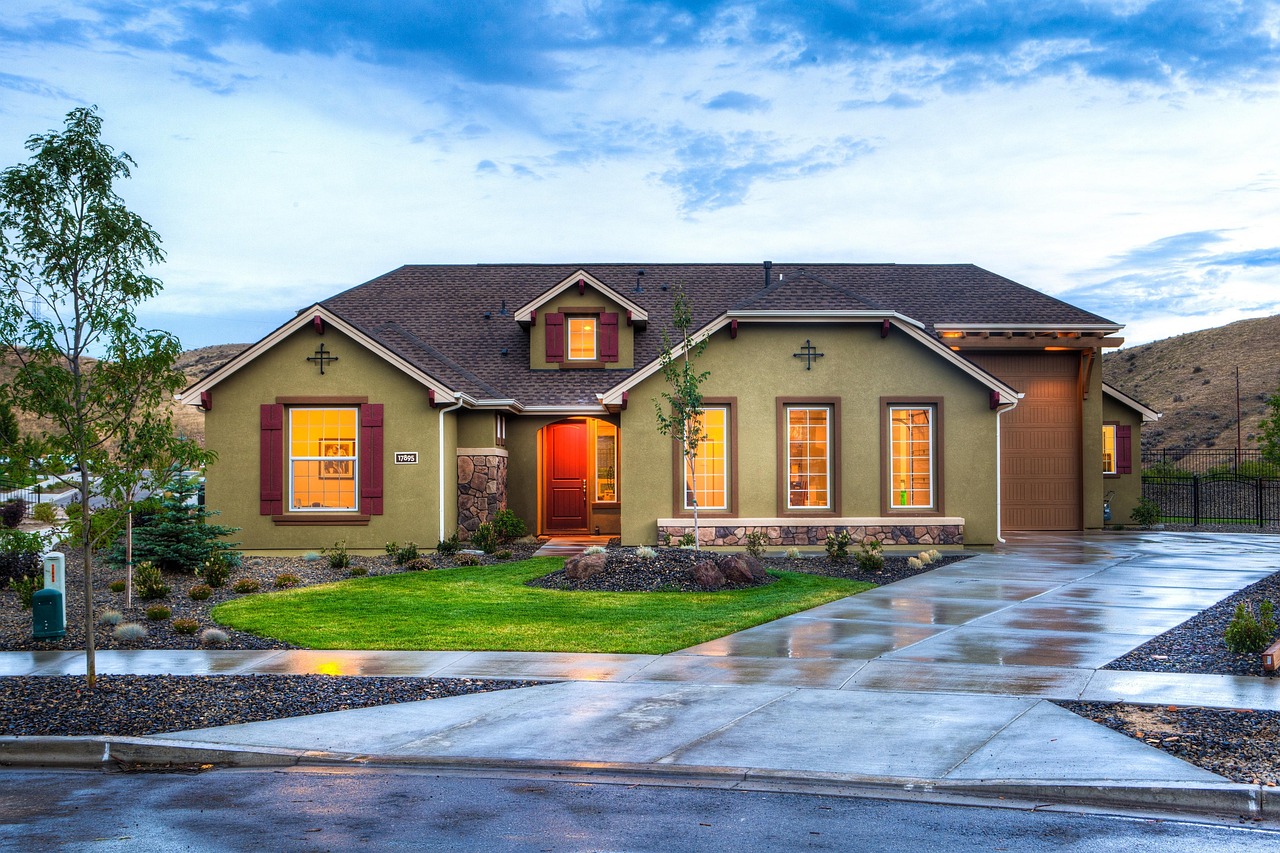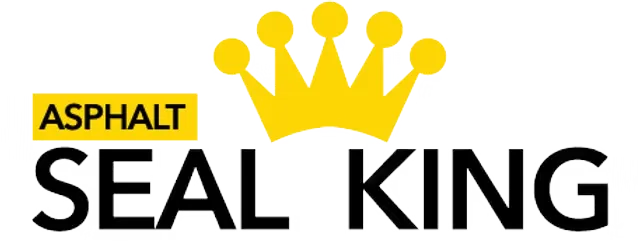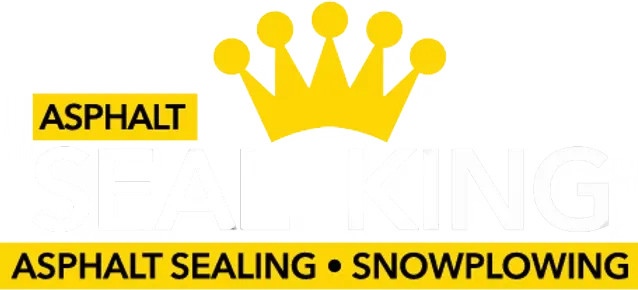Call Us For A Free Quote
Asphalt Seal King Blog: Expert Sealcoating Resources for Bradford, Newmarket & Aurora

Revitalize Your Curb Appeal: The Ultimate Guide to Driveway Resurfacing Near You
Revitalize Your Curb Appeal: The Ultimate Guide to Driveway Resurfacing Near You
Understanding Driveway Resurfacing
Driveway resurfacing is a restorative process aimed at revamping the surface of an existing driveway, giving it a fresh and appealing look. Unlike a full replacement, resurfacing involves applying a new layer of material over the existing structure, which helps in correcting imperfections and revitalizing the driveway's appearance. This method not only extends the life of your driveway but also enhances its aesthetic appeal without the need for a complete overhaul. It is an efficient and cost-effective solution for homeowners looking to improve the first impression of their property.
The process of resurfacing involves cleaning the existing surface, repairing any cracks or significant damage, and then applying a new layer of asphalt, concrete, or other materials. This new layer can be customized with different patterns, colors, and finishes to match the overall design of your home. Resurfacing essentially acts as a facelift for your driveway, allowing you to maintain the existing foundation while upgrading the surface. It is a practical solution for those who want to enhance their driveway without the cost and disruption of a full replacement.
Understanding the intricacies of driveway resurfacing can help homeowners make informed decisions about their property upgrades. The choice of materials, the condition of the existing driveway, and the desired outcome all play a role in determining the best approach. By gaining a comprehensive understanding of the resurfacing process, you can ensure that your driveway not only looks great but also stands the test of time, adding both beauty and value to your home.
Benefits of Resurfacing Your Driveway
Resurfacing your driveway offers numerous benefits that extend beyond mere aesthetics. One of the primary advantages is the enhancement of curb appeal, which can significantly boost the overall appearance of your home. A well-maintained driveway is an attractive feature that greets visitors and passersby, creating a positive first impression. This is particularly important if you are considering selling your home, as a visually appealing exterior can increase its market value and attract potential buyers.
Another key benefit of resurfacing is the improvement of safety and functionality. Cracks, potholes, and uneven surfaces can pose hazards to both vehicles and pedestrians. By resurfacing your driveway, you eliminate these dangers, creating a smooth and safe surface for cars and foot traffic. This not only ensures the safety of your family and guests but also helps prevent damage to vehicles caused by uneven terrain. In addition, a resurfaced driveway is less susceptible to future damage, requiring less maintenance and reducing long-term repair costs.
Cost-effectiveness is another significant benefit of driveway resurfacing. Compared to a complete driveway replacement, resurfacing is a budget-friendly option that delivers impressive results. The process is quicker and involves less labor, which translates to lower costs. Furthermore, the use of durable materials extends the lifespan of your driveway, providing a long-term solution that saves money over time. By opting for resurfacing, you can achieve a high-quality finish that enhances your home's exterior without breaking the bank.
Signs Your Driveway Needs Resurfacing
Recognizing the signs that your driveway needs resurfacing is crucial to maintaining its functionality and appearance. One of the most obvious indicators is the presence of cracks. While minor cracks can be normal, extensive cracking or a network of small fissures known as "alligator cracking" suggests that the surface layer is deteriorating. These imperfections not only affect the visual appeal of your driveway but can also lead to further damage if left unaddressed, making resurfacing a timely intervention.
Another sign that your driveway may require resurfacing is the appearance of potholes or depressions. These defects are typically caused by the erosion of the underlying base, leading to surface collapse. Potholes can be hazardous to vehicles and pedestrians, potentially causing damage to tires and creating tripping risks. Resurfacing can effectively address these issues by providing a new, even layer that restores the integrity of your driveway and prevents future damage.
Discoloration or staining is also an indicator that resurfacing may be necessary. Over time, exposure to the elements, vehicle fluids, and other contaminants can cause unsightly stains and fading. This discoloration not only detracts from your home's curb appeal but can also signal deeper structural issues. By resurfacing your driveway, you can eliminate these blemishes and achieve a clean, uniform look that enhances your property's exterior.
Different Types of Driveway Resurfacing Materials
Choosing the right materials for your driveway resurfacing project is essential for achieving the desired look and durability. Asphalt is a popular choice due to its affordability, flexibility, and ease of installation. It provides a smooth, black surface that complements a variety of architectural styles. Asphalt is especially well-suited for climates with cold winters, as it can withstand freeze-thaw cycles without cracking. Additionally, it can be easily repaired, making it a practical option for long-term maintenance.
Concrete is another widely used material, known for its durability and versatility. It offers a clean, modern look and can be customized with different colors, textures, and patterns through the use of stamps and stains. Concrete driveways are low-maintenance and can last for decades when properly cared for. However, they are more susceptible to cracking in areas with frequent temperature fluctuations. Despite this, the aesthetic appeal and longevity of concrete make it a popular choice for homeowners looking to enhance their curb appeal.
For those seeking a more unique and upscale appearance, pavers or brick are excellent options. These materials offer a range of design possibilities and can be arranged in intricate patterns to create a distinctive look. Pavers and brick are highly durable and can withstand heavy traffic without damage. They also allow for easy repairs, as individual units can be replaced without disturbing the entire surface. Though more expensive than asphalt or concrete, the visual impact and durability of pavers and brick make them a worthwhile investment for enhancing your driveway.
How to Choose the Right Driveway Resurfacing Contractor
Selecting the right contractor for your driveway resurfacing project is crucial to achieving a high-quality result. Start by researching local contractors with experience in driveway resurfacing. Look for companies with positive reviews and a portfolio of completed projects that align with your vision. Word-of-mouth recommendations from friends or neighbors can also be valuable, as firsthand experiences provide insights into the contractor's reliability and workmanship.
Once you have a shortlist of potential contractors, request quotes and compare them to ensure you are getting a fair price. Be wary of estimates that seem significantly lower than others, as this may indicate subpar materials or workmanship. It's important to verify that the contractor is licensed and insured, protecting you from liability in case of accidents or damage during the project. Additionally, ask about warranties or guarantees on the work to ensure peace of mind and long-term satisfaction.
Communication is a key factor in choosing the right contractor. A reputable company will be transparent about the process, timeline, and costs, answering any questions you may have. They should be willing to discuss your preferences and provide recommendations based on their expertise. By establishing clear expectations and maintaining open communication, you can ensure that your driveway resurfacing project is completed to your satisfaction, enhancing both the beauty and value of your home.
The Driveway Resurfacing Process: What to Expect
Understanding the driveway resurfacing process can help set realistic expectations and ensure a smooth experience. The first step typically involves a thorough cleaning of the existing surface to remove dirt, debris, and stains. This is essential for ensuring proper adhesion of the new layer. Power washing is commonly used for this purpose, effectively clearing away any contaminants that could interfere with the resurfacing process.
Next, any cracks or damage in the current driveway are repaired. This may involve filling in cracks with a suitable material or patching potholes to create a smooth base. These repairs are crucial for preventing future damage and ensuring the longevity of the new surface. Once the surface is prepped and repaired, the chosen resurfacing material is applied. This can be done using various techniques, such as spreading asphalt or pouring concrete, depending on the material selected.
After the new layer is applied, it must be allowed to cure and set. The curing time varies based on the material and environmental conditions but generally takes a few days. During this period, it's important to avoid driving or placing heavy objects on the surface to prevent damage. Once fully cured, the driveway is ready for use, showcasing a fresh, attractive appearance that enhances your home's curb appeal. Understanding these steps helps ensure that you are prepared for the process and can enjoy the benefits of a newly resurfaced driveway.
Cost Factors for Driveway Resurfacing
Several factors influence the cost of driveway resurfacing, and understanding them can help you budget effectively. The size of your driveway is a primary determinant of cost, as larger areas require more materials and labor. The choice of resurfacing material also impacts the overall expense. Asphalt tends to be the most cost-effective option, while concrete and pavers are more expensive due to the materials and craftsmanship involved.
Labor costs are another significant factor, influenced by the complexity of the project and the contractor's rates. Highly skilled contractors may charge more, but their expertise often results in superior workmanship and a longer-lasting finish. Additionally, the extent of repairs needed before resurfacing can affect costs. Driveways with extensive damage or uneven surfaces require more preparation work, which can increase the overall expense.
Geographical location can also play a role in pricing, as material and labor costs vary by region. Urban areas may have higher rates due to increased demand and cost of living, while rural areas might offer more competitive pricing. It's important to obtain multiple quotes and consider all these factors when budgeting for your driveway resurfacing project. By doing so, you can ensure that you receive a fair price for quality work that enhances your home's exterior.
DIY vs. Professional Driveway Resurfacing: Pros and Cons
Deciding between DIY and professional driveway resurfacing involves weighing the pros and cons of each approach. DIY resurfacing can be an attractive option for those looking to save money, as it eliminates labor costs. With the right tools and materials, homeowners can tackle minor repairs and apply a new surface layer themselves. This option also allows for flexibility in scheduling, as you can work at your own pace without coordinating with a contractor.
However, DIY resurfacing comes with challenges and potential risks. Without professional expertise, there is a higher likelihood of mistakes, such as improper material application or inadequate surface preparation. These errors can lead to premature wear or failure of the new surface, resulting in additional costs for repairs or replacement. Moreover, DIY projects require a significant investment of time and effort, which may not be feasible for all homeowners.
Professional resurfacing, on the other hand, ensures a high-quality finish and long-lasting results. Experienced contractors have the skills and equipment necessary to complete the job efficiently and effectively. They can also provide valuable advice on material selection and design options, tailoring the project to your specific needs. While more expensive upfront, the expertise and peace of mind offered by professional resurfacing often justify the investment, resulting in a beautiful, durable driveway that enhances your home's curb appeal.
Maintenance Tips for Your Newly Resurfaced Driveway
Proper maintenance is essential for preserving the appearance and functionality of your newly resurfaced driveway. Regular cleaning is a simple yet effective way to prevent the buildup of dirt, debris, and stains. Sweeping the surface regularly and using a hose or power washer to remove stubborn grime can keep your driveway looking fresh. Additionally, promptly addressing any spills, particularly oil or chemical stains, will help maintain the surface's integrity and appearance.
Sealing is another important maintenance step for certain materials, such as asphalt. Applying a high-quality sealant every few years protects the surface from moisture, UV rays, and other elements that can cause deterioration. Sealing also enhances the color and finish of the driveway, contributing to its aesthetic appeal. For concrete driveways, resealing may be necessary to maintain any color or pattern treatments, ensuring a consistent and attractive look.
Regular inspections can help identify potential issues before they become significant problems. Keep an eye out for cracks, depressions, or signs of wear that may require attention. Addressing minor repairs promptly can prevent more extensive damage and extend the lifespan of your driveway. By following these maintenance tips, you can ensure that your resurfaced driveway remains a stunning and functional feature of your home for years to come.
Conclusion: Enhancing Your Home's Curb Appeal
Driveway resurfacing is a transformative process that significantly enhances the curb appeal of your home. By addressing imperfections and updating the surface with modern materials and finishes, you create an inviting and visually appealing entryway that complements your property's overall aesthetic. Whether you choose asphalt, concrete, or pavers, resurfacing offers a cost-effective solution for revitalizing your driveway and boosting your home's exterior appeal.
The benefits of resurfacing extend beyond aesthetics, offering improved safety, functionality, and durability. By choosing the right contractor and materials, you ensure a high-quality finish that stands the test of time. Proper maintenance further enhances the longevity and appearance of your driveway, making it a worthwhile investment that pays off in both beauty and value. Whether you are preparing to sell your home or simply want to enjoy a more attractive exterior, driveway resurfacing is an excellent option for enhancing your property's curb appeal.
In conclusion, driveway resurfacing is a practical and impactful way to elevate your home's exterior. By understanding the process, selecting the right materials, and maintaining your driveway, you can achieve a stunning transformation that leaves a lasting impression. Your home deserves a beautiful and welcoming entryway, and resurfacing your driveway is the perfect way to achieve that. Embrace the opportunity to revitalize your curb appeal and enjoy the benefits of a refreshed and inviting driveway.
Snow Plowing Service Areas
Contact Us
Asphalt Seal King
(289)716-5557
Hours: Mon – Sun 8:00am - 9:00pm

